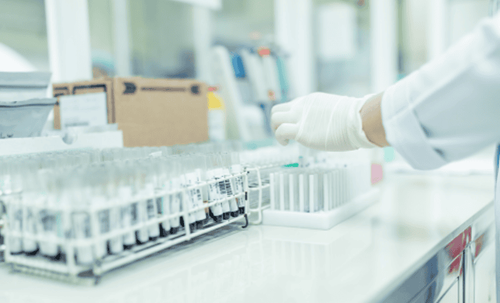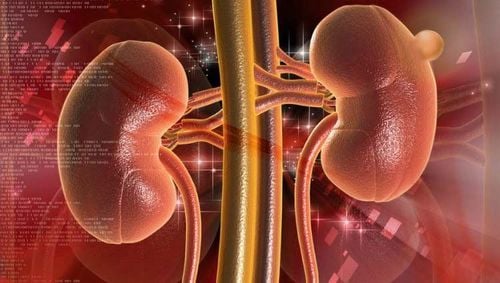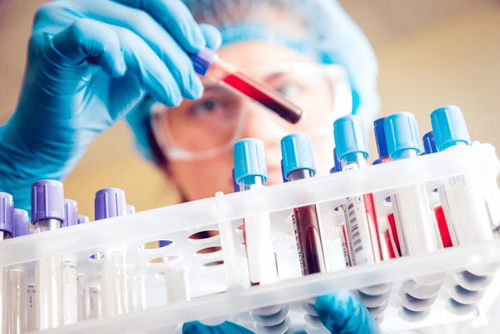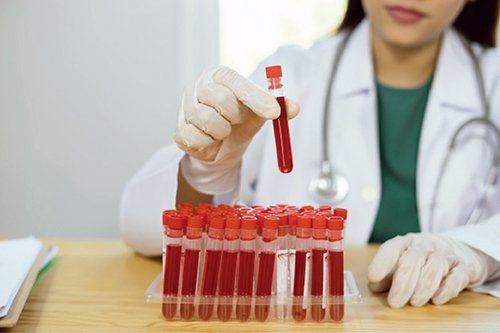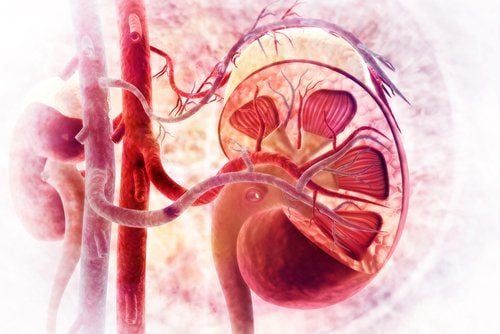This is an automatically translated article.
The article was professionally consulted by Doctor Do Thi Hoang Ha - Doctor of Biochemistry - Laboratory Department - Vinmec Hai Phong International General HospitalBlood creatinine is a catabolism product of creatine produced by the reaction of creatine phosphate with ADP to produce creatine and release energy. Creatinine is of exogenous origin from food and is of endogenous origin mainly from the liver (synthesized from arginine and methionine), a small amount is synthesized from the kidney and pancreas. Quantitative blood creatinine test will help us know many health problems, in which mainly evaluate kidney function.
1. Quantitative blood creatinine test
Quantitative blood creatinine test helps us to know the level of creatinine in the blood. Creatinine is filtered by the glomeruli and excreted by the kidneys, not being reabsorbed by the renal tubules. Therefore, if the kidneys are working well, then the creatinine will be eliminated well and vice versa. Therefore, quantitative creatinine testing is often ordered to evaluate renal function (usually used in conjunction with creatinine clearance).Just like measuring blood glucose, measuring blood creatinine also changes hourly. After eating, creatinine levels usually increase slightly and rise more if large amounts of protein are eaten. Normally, blood creatinine levels are highest around 7 pm (average 20-40% higher than in the morning) and lowest around 7 am.
Factors affecting blood creatinine levels include: body weight, protein intake, health status, some drugs... and can vary from person to person.
Normal blood creatinine levels in women are 0.5-1.1 mg/dl or 44-97 umol/l (SI units) and in healthy men are 0.6-1.2 mg/dl or 53-106 umol/l ( SI units).
2. When is the blood creatinine level high?
Some cases cause the blood creatinine to increase, such as:Renal failure due to pre-renal origin: Effects of antihypertensive drugs and diuretics, dehydration of the body leading to a decrease in circulating volume, decompensated heart failure, hemorrhage, renal artery stenosis .. Renal failure due to renal origin: + Glomerulonephritis: High blood pressure, diabetes, glomerulonephritis, systemic lupus erythematosus, glomerular lgA deposition (Berger's disease) ), amyloidosis (Amyloidosis), treatment with Angiotensin-converting enzyme inhibitors ...
+ Renal tubular damage: nephritis - acute or chronic pyelonephritis, kidney stones, multiple myeloma , hypercalcemia, hyperuricemia, due to the use of nephrotoxic drugs (rifampicin, sminoglycoside ..), intoxication (lead, mercury, CCl4 ..)
Renal failure due to post-renal origin: Kidney stones , uterine tumor (fibroma, adenocarcinoma..), retroperitoneal fibrosis, prostate cancer, bladder tumor..
3. Low blood creatinine when?
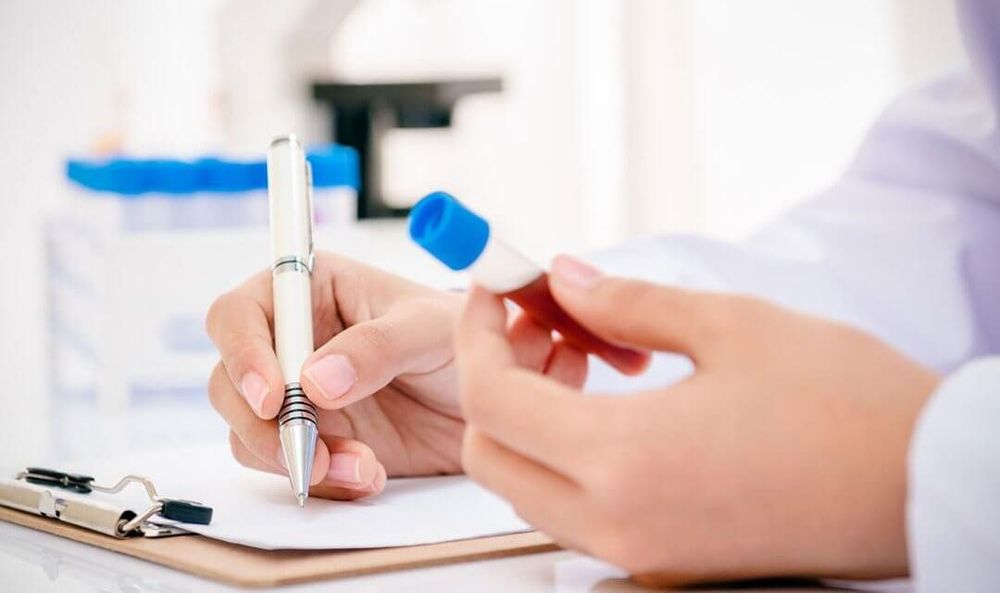
Physiological factors such as pregnant women; People with severe malnutrition; Dilute the blood; Myopathy causes muscle tissue atrophy. Syndrome of inappropriate antidiuretic hormone (ADH) secretion
4. When should blood creatinine quantitative test?
Quantitative blood creatinine test is often indicated to diagnose renal dysfunction, usually in conjunction with a blood urea nitrogen test. The normal blood urea/creatinine ratio is between 6:1 and 20:1.This test needs to be done regularly, periodically to capture the body's condition. People with signs of impaired kidney function should immediately have a blood creatinine test. Signs include:
Fatigue, loss of appetite, insomnia, difficulty concentrating; Blood in the urine; Dark, coffee-like urine; Decreased urine output; Swelling or swelling of the face, abdomen, thighs, or ankles, especially around the eyes; Pain in the side, below the ribs; Hypertension. Note, before the test, the patient needs to fast for about 6-8 hours. It is best to take the test in the morning without eating and stop taking the medicine. If you need to take medication before the test, you should consult your doctor before the test.
Quantitative creatinine test plays an important role in the diagnosis, early detection and aggressive treatment of kidney diseases. Therefore, if the patient is at high risk of kidney disease or has warning signs of kidney failure, the patient should soon seek a reputable medical facility to perform a creatinine level test and other diagnostic methods.
Vinmec International General Hospital is one of the hospitals that not only ensures professional quality with a team of leading medical doctors, modern equipment and technology, but also stands out for its examination and consultation services. comprehensive and professional medical consultation and treatment; civilized, polite, safe and sterile medical examination and treatment space. Customers when choosing to perform tests here can be completely assured of the accuracy of test results.
Please dial HOTLINE for more information or register for an appointment HERE. Download MyVinmec app to make appointments faster and to manage your bookings easily.





